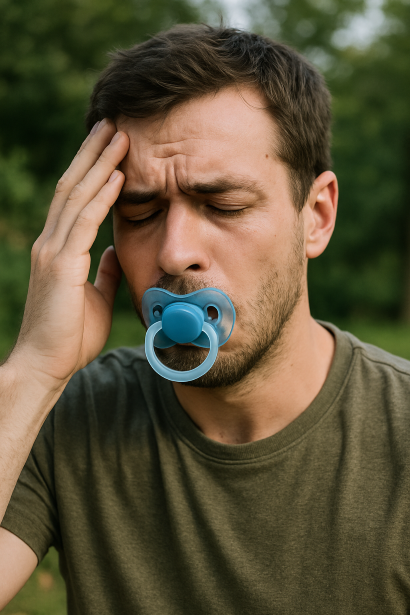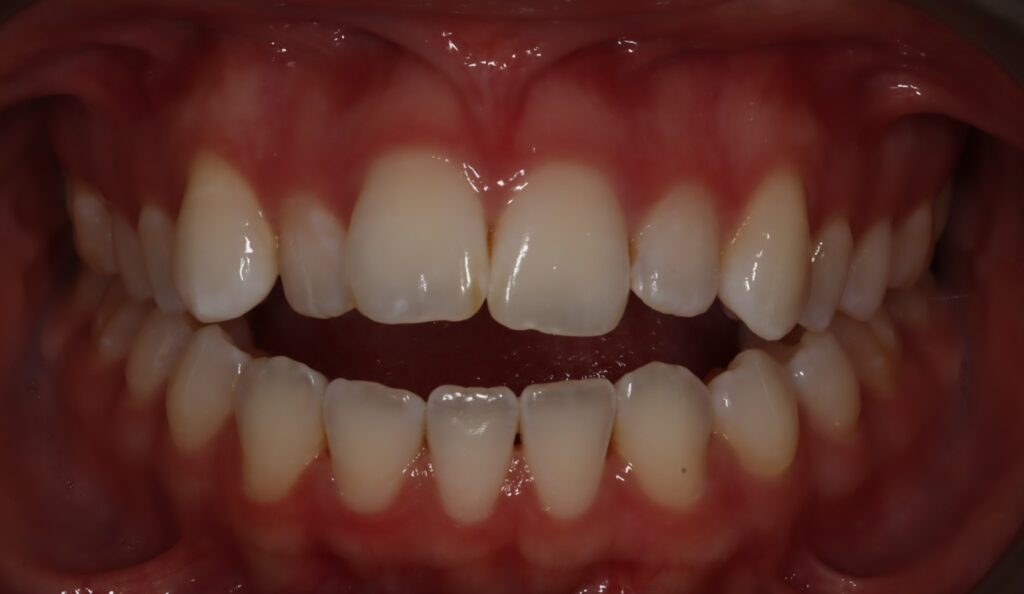Adult Pacifiers: A Frisco Dentist Explains the Risks, Benefits & Safety

What Is an Adult Pacifier?
An adult pacifier is a larger, sturdier version of an infant’s pacifier, designed for people over 18. They’re marketed for stress relief, sensory soothing, sleep support, and sometimes cosplay. Searches for adult pacifier, pacifiers for adults, and orthodontic pacifier for adults are trending—but what do they actually do to your teeth and overall oral health?
At Tribute Family Dentistry in Frisco, TX, we’re here to separate facts from marketing and give you the dental perspective.
Checking It: How Do You Use an Adult Pacifier Safely?
If you choose to try an adult pacifier, keep these safety steps in mind:
- Inspect the material – Make sure it’s BPA-free and medical-grade silicone.
- Check the shield – It should be wide enough to prevent accidental swallowing.
- Look for cracks or tears – Replace immediately if damaged.
- Clean thoroughly – Wash with warm water and mild soap after each use to prevent bacteria buildup.
- Limit time – Avoid prolonged sucking, especially during the day.
Think of it like any oral appliance—just like a night guard, it requires care and caution to prevent infections or dental issues.
Things to Know About Adult Pacifiers
- Not risk-free: Prolonged use can cause bite changes like open bite or flared teeth.
- Temporary relief only: They may help calm stress or replace habits (like nail biting), but they don’t fix the root cause.
- Not a replacement for treatment: If you clench, grind, or snore, a custom night guard or myofunctional therapy is far more effective.
- Hygiene matters: Pacifiers can harbor bacteria if not cleaned regularly.
- Stigma vs. health: Some use them privately for self-soothing; dental consequences are what matter most.
When Should You Stop Using an Adult Pacifier?
Dentists recommend stopping if:
- You notice changes in your bite (front teeth not touching, teeth shifting).
- You develop jaw pain, headaches, or TMJ clicking.
- Your pacifier shows cracks, sharp edges, or discoloration.
- You find yourself relying on it for hours each day.
⚠️ Important: Adults don’t “grow out” of bite changes the way children sometimes do—damage can be permanent without orthodontic treatment.
Sizes of Adult Pacifiers
Unlike baby pacifiers, adult versions come in different sizes:
- Adult Small/Medium: Designed for beginners or lighter use.
- Adult Large/XL: Wider teats and shields for a stronger sucking habit.
- Custom Sizes: Specialty shops sometimes offer custom molds.
🦷 From a dental perspective: Larger pacifiers create more suction force, which means a higher chance of tooth movement or bite changes.
Benefits of Using an Adult Pacifier
Some adults report benefits such as:
- Stress relief: Mimics a calming reflex.
- Sensory soothing: Helpful for individuals with sensory processing disorders.
- Habit replacement: Can reduce nail biting, lip chewing, or smoking urges.
- Sleep aid: Some find it relaxes them before bed.
💡 However, many of these benefits can be achieved in healthier ways (stress therapy, chewing sugar-free gum, using a night guard, or practicing breathing exercises).
Types of Adult Pacifiers
- Orthodontic Shape: Flattened nipple to reduce pressure on teeth (but not risk-free).
- Round/Traditional Shape: Classic bulb, applies more pressure on front teeth.
- Novelty/Custom Designs: Used more for fashion or cosplay than function.
- Medical/Sensory Pacifiers: Marketed for therapeutic use in anxiety or sensory disorders.
How to Choose the Right Adult Pacifier
If you still want to try one:
- Choose medical-grade materials (BPA-free silicone).
- Pick a shield size that fits your face comfortably.
- Avoid oversized or novelty shapes that increase force on teeth.
- Use orthodontic shapes over round bulbs.
- Buy from reputable suppliers (avoid unsafe bulk or gag products online).
- Set limits: Occasional use is safer than nightly dependence.
Risks for Your Teeth
- Long-term use can cause open bite, flared incisors, or crossbite.
- They can aggravate TMJ pain or lead to jaw fatigue.
- They don’t protect against clenching or grinding—only a night guard does.
- Poor cleaning can increase cavity and gum risk.
FAQ: Adult Pacifiers
Are adult pacifiers safe for teeth?
Occasional use is low risk, but frequent use can cause bite changes and jaw strain.
Do adult pacifiers ruin teeth?
Yes, long-term sucking can shift teeth out of alignment, requiring orthodontics to fix.
Are there benefits?
Yes, stress relief and sensory soothing—but safer alternatives exist.
When should I stop using one?
At the first sign of bite changes, jaw pain, or if you find yourself relying on it daily.
What size should I get?
Smaller sizes apply less force, but all carry risk if used habitually.
Frisco Dentist’s Recommendation
If you’re curious about adult pacifiers, know the risks outweigh the benefits for most patients. For stress, sleep, or clenching issues, healthier alternatives exist:
- Night guards for grinding
- Myofunctional therapy for breathing/tongue posture
- Stress-relief strategies for anxiety
At Tribute Family Dentistry in Frisco, TX, we’ll help you protect your teeth while finding the right solution for your needs.



